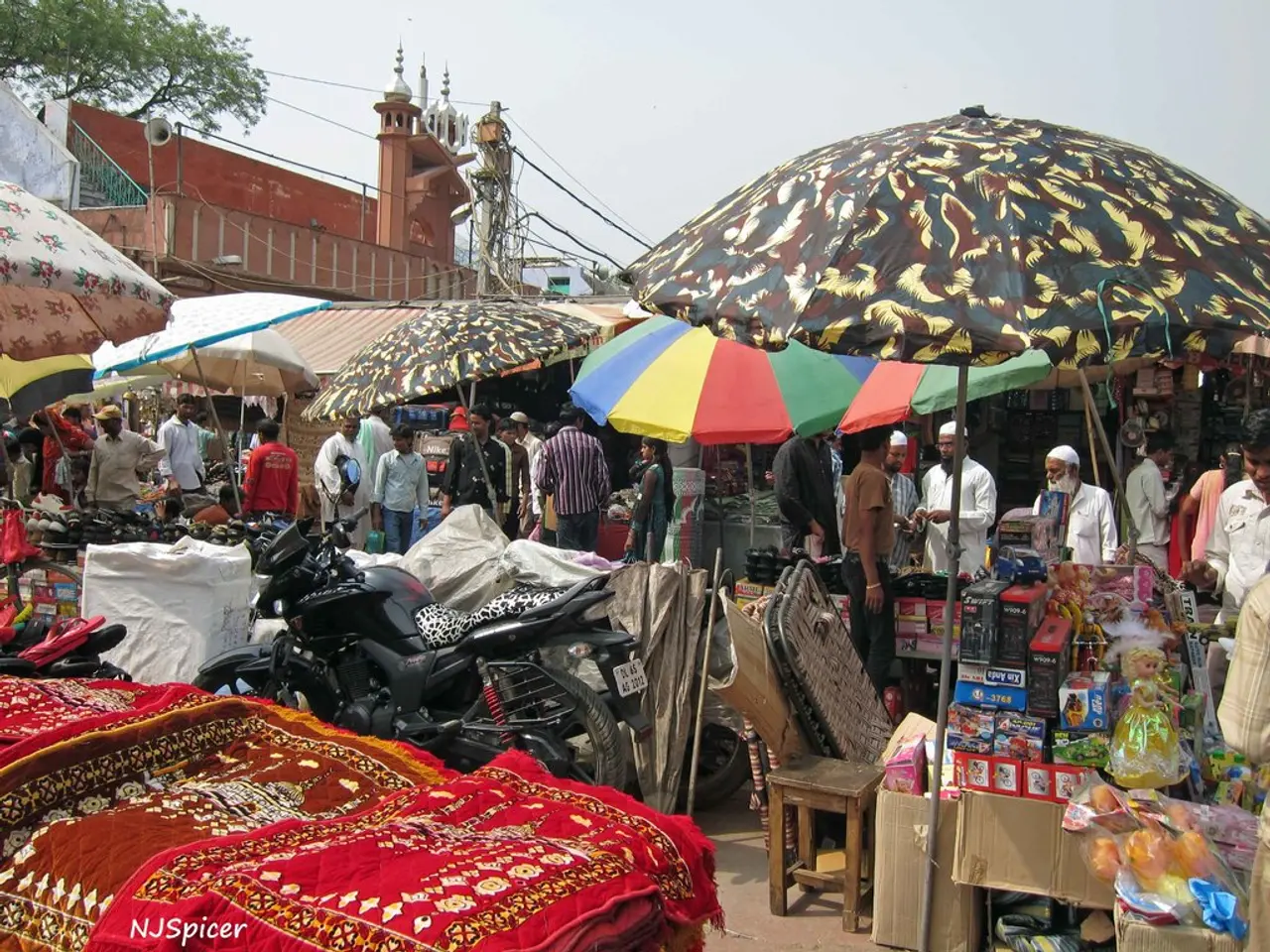Christians in Jordan express significant dissatisfaction with the state of affairs in Gaza
Jordan's Islamic Action Front Wins Majority in Parliamentary Elections
Jordan has witnessed a significant shift in its political landscape following the 2021 parliamentary elections, with the Islamic Action Front (IAF), the political arm of Jordan's Muslim Brotherhood, securing a majority of the newly introduced national-level closed-list seats.
The IAF's success was largely due to widespread public discontent over regional and domestic issues, particularly the Gaza crisis of 2021. The party capitalized on popular anger and solidarity, riding a wave of disenchantment with the government’s stance towards Palestine.
The elections introduced a greater role for political parties via national closed-list seats, benefiting more organized groups like the IAF, which could compete on platforms rather than solely on tribal or personal loyalties. Prominent IAF figures, such as Nasser Nawasreh, a former teachers' union deputy president, increased the party’s visibility by advocating key social and labor issues, contributing to their popularity among voters.
However, the IAF's electoral gains were met with state pushback. Following their victory, the Jordanian regime, aligned with regional allies Egypt, Saudi Arabia, and the UAE, formally banned the Muslim Brotherhood in April 2025, citing security concerns related to a foiled extremist plot. This ban has reset the regime’s relationship with its oldest opposition group, essentially reducing the IAF's political space despite their parliamentary presence.
The ban on the Brotherhood and subsequent closure of key civil society organizations, such as the teachers' union, signaled a sharp political crackdown, signifying a shrinking of genuine political pluralism in Jordan despite the prior electoral gains by Islamist opposition.
The episode illustrated the tensions between limited political liberalization reforms (aimed at modernizing voting systems and increasing party role) and the monarchy’s long-standing control strategies to contain Islamist and opposition forces amid ongoing economic and social challenges.
In addition to the political changes, Jordan hosts thousands of refugees from other conflicts and is preparing for the potential impact of the war between Israel, Hamas, and Hezbollah. The conflict in the Middle East is escalating, and Jordan's stability is at stake.
The victory of the Islamic Action Front with 31 seats out of 138 represents a major breakthrough. However, the future of Jordan's political landscape remains uncertain as the regime continues to assert its control and the region faces ongoing conflicts.
[1] Al-Shalabi, M. (2022). Jordan’s 2021 parliamentary elections: The rise and fall of the Muslim Brotherhood. Middle East Policy, 29(1), 51-61.
[2] Kerr, J. A. (2022). Jordan's 2021 elections: A step backward for democracy? Middle East Institute. https://www.mei.edu/publications/jordans-2021-elections-step-backward-democracy
Read also:
- United States tariffs pose a threat to India, necessitating the recruitment of adept negotiators or strategists, similar to those who had influenced Trump's decisions.
- Weekly happenings in the German Federal Parliament (Bundestag)
- Southwest region's most popular posts, accompanied by an inquiry:
- Discussion between Putin and Trump in Alaska could potentially overshadow Ukraine's concerns








